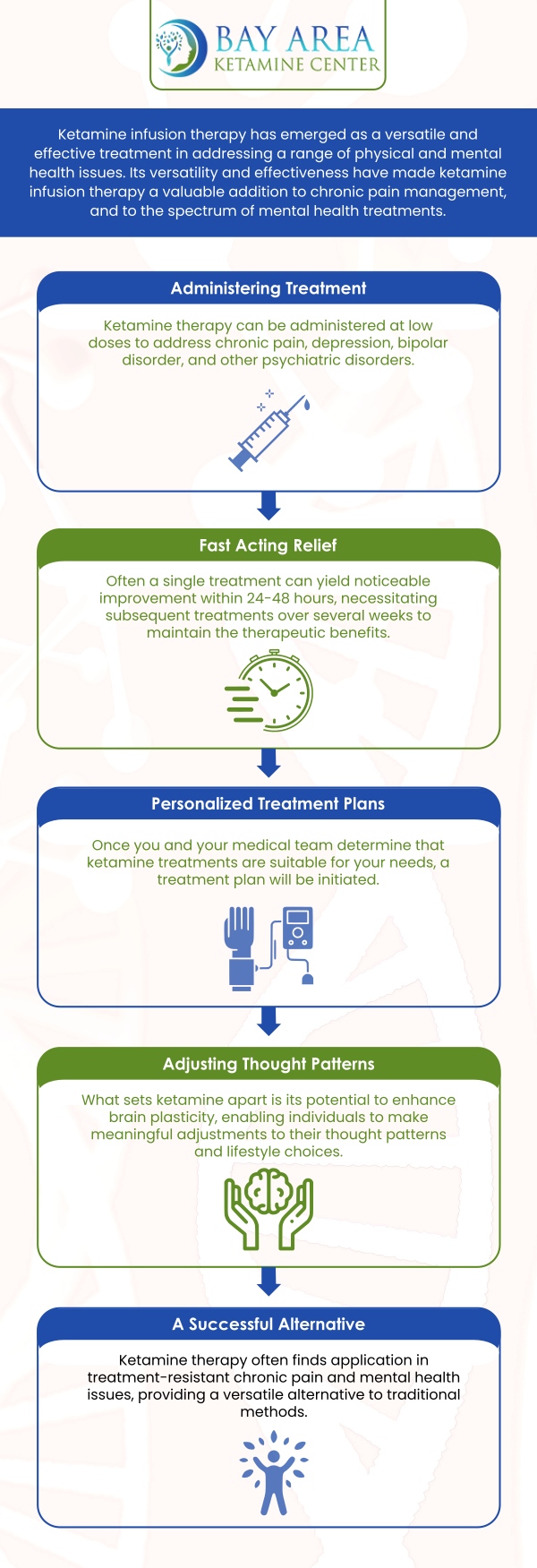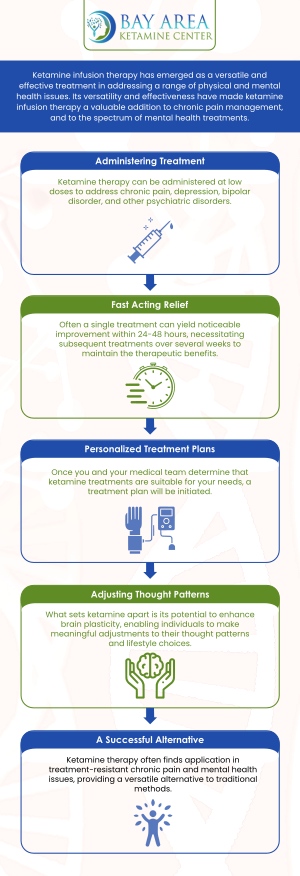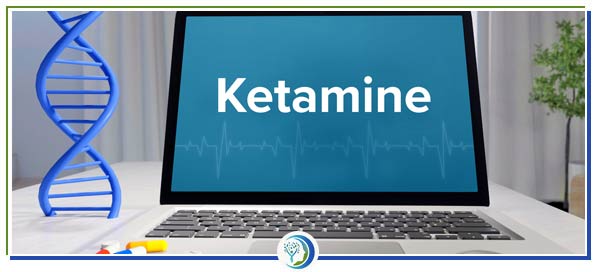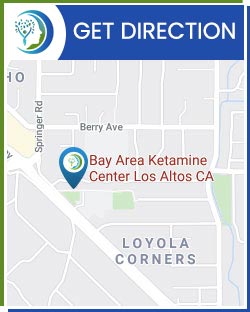What to Do After Ketamine Treatment Q&A
Ketamine is a substance that allows individuals who have been diagnosed with depression to receive treatment that can make lasting results. The Bay Area Ketamine Center is a specialized facility that provides Ketamine treatment for anxiety, depression, chronic pain, and other mental health challenges. Contact us today for more information or visit us to schedule an appointment online. Our clinic is conveniently located at 746 Altos Oaks Drive Suite B, Los Altos, CA 94024.




Table of Contents:
What is ketamine?
Why use ketamine?
How quickly does ketamine work?
What is the aftercare of Ketamine treatments?
Ketamine was used as an anesthesia medicine for animals back in the 1960s in Belgium; however, it has since been retrofitted as an anesthetic for people as early as the 1970’s. It was often used to treat the likes of soldiers who were fighting on the battlefields in Vietnam. Ketamine was not like other anesthetics, as it doesn’t slow the individuals breathing or their heart rate, so patients that are on ketamine do not need to be on a ventilator to receive it.
Ketamine causes a feeling of becoming untouched from reality, basically, you lose all sensory and become distorted to the feeling of your body, thoughts and beliefs, and it provides a feeling of euphoria, all of which is temporary. This temporary feeling lasts an average of about 2 hours.
Ketamine has been tested in clinical settings with a controlled atmosphere and is FDA-approved to be used for individual treatment for depression. Often it will be used by doctors to help their patients get relief from other medications.
Many medical clinics and physicians will use ketamine as a medication for their patients to induce loss of consciousness. The effects of ketamine include reduced sensation of pain and sedation.
Ketamine is used for therapeutic uses which often include:
• Inducing general anesthesia
Physicians use ketamine to induce general anesthetics either by itself or with other general anesthetics. It is often used in emergency department settings to provide a short-term sedation when necessary.
• Treating pain
Practitioners will use low doses which do not produce dissociation to relieve their patient’s severe pain from the following:
• Trauma
• Fractures
• Abdominal pain
• Arm or leg pain
• Lower back pain
• Treating status epilepticus
Status epilepticus is when an individual has a seizure and it lasts for longer than 5 minutes or the individual has more than one seizure within the 5-minute timeframe.
• Treating depression
Physicians will often use ketamine as a substance to quickly relieve depression in their patients who are not responding well to other treatment methods.
• Treating anxiety
While it has been noted that ketamine has often made significant effects on reducing anxiety in patients when using it for depression, it is encouraged as a treatment for anxiety.
The key factor when it comes to how quickly ketamine works will depend on how it is administered. While there are many other factors at play as well, this is the main factor.
Ketamine can be administered in one of four ways:
1. Intravenous infusion (IV)
Intravenous infusion is done by directly submitting the ketamine substance straight into the bloodstream through an IV. It provides rapid onset of effects, and it can last up to five hours depending on the physician’s recommendation.
2. Intramuscular infusion (IM)
Intramuscular infusion is administered with a syringe straight into the muscle in the thighs or shoulders. Intramuscular infusion typically takes on average 2 to 4 minutes for the effects to kick in and can last up to 3 hours.
3. Sublingual tablets
Sublingual tablets use rapid dissolving tablets that are placed in the mouth for direct oral absorption and then removed after the maximum point of absorption.
4. Intranasal Spray (IN)
Intranasal spray options are administered through the nose by a spray, this method on average takes 5 to 10 minutes to take effect, and can last up to 3 hours.
Often after a Ketamine treatment has commenced, we always recommend you have someone available that can be there for you, not only as a ride home but also as someone there to hold your hand and offer support without placing judgment, this is due to patients many times saying things that may seem out of the ordinary from how they would normally act. Contact us today for more information or visit us to schedule an appointment online. Our clinic is conveniently located at 746 Altos Oaks Drive Suite B, Los Altos, CA 94024. We serve patients from Los Altos CA, Sunnyvale CA, Palo Alto CA, Stanford CA, Atherton CA, Cupertino CA, Santa Clara CA, Mountain View CA, Loyola CA, and surrounding areas.

Check Out Our 5 Star Reviews







